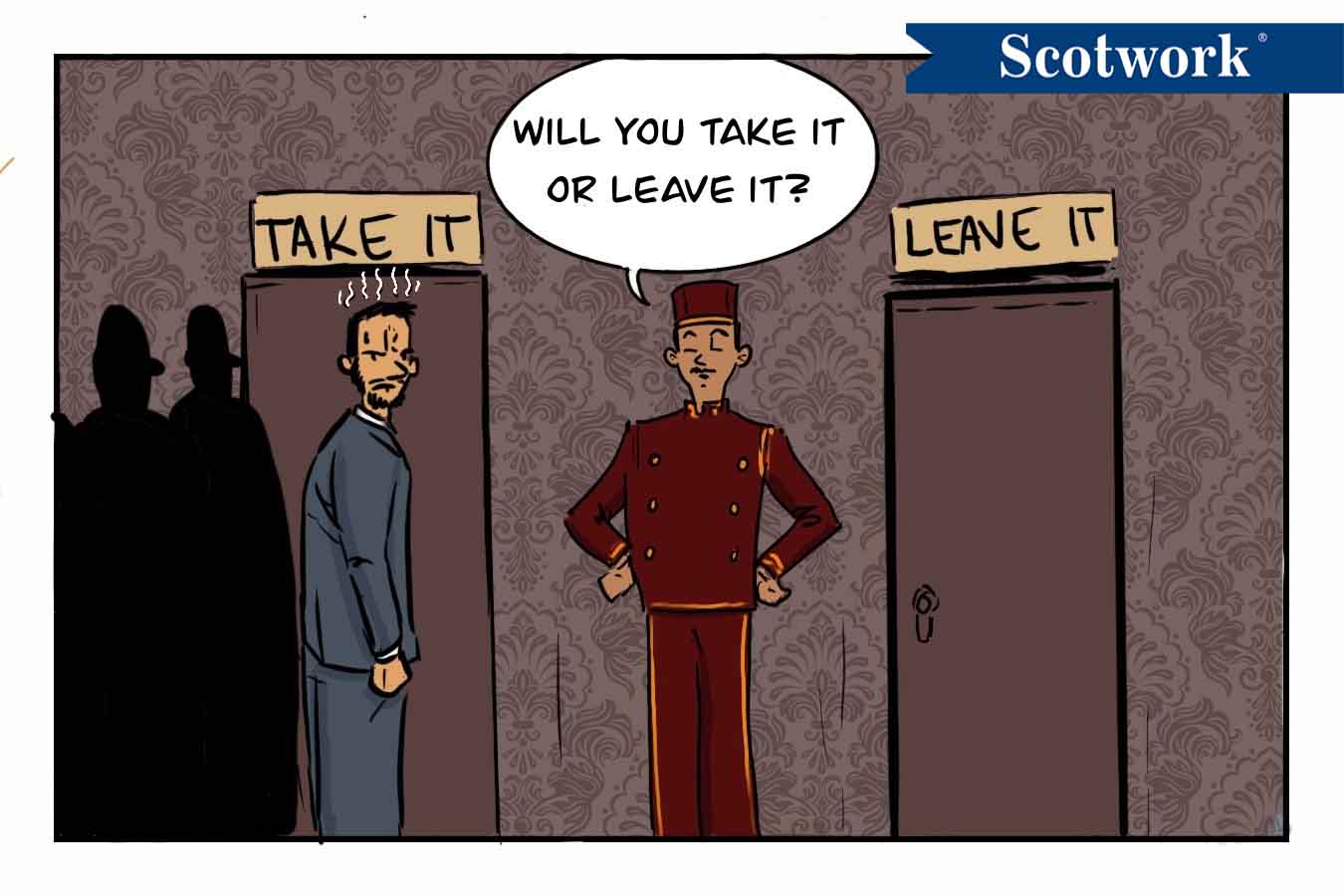Read this, or else! As leaders, pundits, and influencers try to simplify incredibly complex topics into shareable sound bites or clickbait, the use of ultimatums is on the rise. At every turn, it feels like we’re faced with some sort of threat wrapped in an ultimatum. The problem is that the misuse of ultimatums can lead to greater division, bigger problems, and more conflict.
An ultimatum is a “take it or leave it” proposition delivered with the expectation of compliance. It’s often framed as a final offer, leaving no room for negotiation.
Ultimatums are designed to force a decision by introducing a sense of urgency or consequence. For example, a supplier might say, “If you can’t accept these new payment terms, we’ll stop supplying your product.” A buyer, on the other hand, could demand, “We need a 10% discount by end of day, or we’ll take our business elsewhere.”
Ultimatums can be effective when used strategically and sparingly. They can . . .
- simplify the conversation by establishing clear boundaries or limits, and they can expedite decision-making. They assert control by forcing a path forward.
- project strength and confidence, reinforcing your sense of control in the negotiation.
- save time by expediting the outcome and forcing the other side to choose, which can be useful when things have stalled.
Overusing ultimatums can backfire and create an even worse issue for you. That’s where they can become “ultimiss’ems.” Impacts of misused ultimatums:
- Damaged relationships: Ultimatums can create resentment and erode trust, especially in long-term partnerships. Not to mention, the other party may feel cornered or disrespected, making future collaboration difficult.
- Escalation of conflict: An ultimatum can escalate tensions and lead to a hard “no” from the other party, particularly if they feel bullied.
- Loss of flexibility: By issuing an ultimatum, you limit your own ability to adjust or compromise. It can also remove your ability to seek creative alternatives.
- Perception of weakness: Ultimatums can signal desperation, especially if they aren’t backed by real power or leverage or rarely followed through with.
- Unwanted outcomes: Be careful what you wish for — you might be stuck with the “or else” and forced to deal with unwanted outcomes or unintended consequences.
Ultimatums have their place in a negotiation. But before you use one, consider the following questions:
- Can you follow through? Empty threats destroy credibility. Make sure you can follow through on whatever ultimatum you put out there.
- Can you accept the outcome? Beyond the ability to follow through, make sure you can live with the outcomes you’re forcing the other side to choose between.
- Is the relationship critical? Make sure you can accept the consequence or damage to the relationship caused by using the ultimatum.
- Is it worth it? Ultimatums should not be used for trivial things but rather for the decisions that will have a critical impact on your strategic objectives.
- Are there other alternatives? If there are other alternatives available, your ultimatum could be undermined or ineffective in its mission.
If any of the answers to these questions give you pause, then reconsider using an ultimatum and look for other ways to move your negotiation forward.
However, if you feel an ultimatum is appropriate and necessary, I recommend that, when delivering it, be direct (do not use squishy language), maintain your composure (be calm and confident), and do not signal flexibility (be firm).
Ultimatums are a double-edged sword: They can create clarity and drive results, but they can also harm relationships if not used strategically and sparingly. Use them or don’t — it’s up to you (that’s my ultimatum to you).
We Can Help You Use Ultimatums Strategically.
Ultimatums are a double-edged sword: They can create clarity and drive results, but they can also harm relationships if not used strategically and sparingly. Rely on Scotwork’s 50 years of experience to know when to deploy a hard choice.

